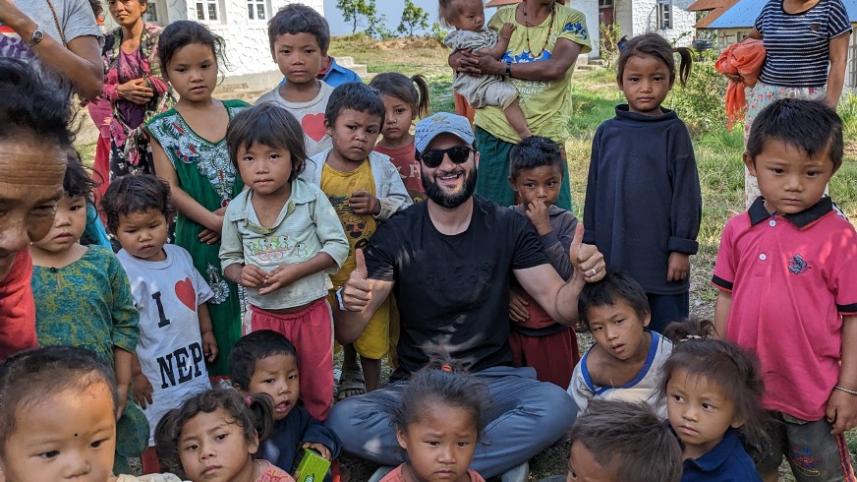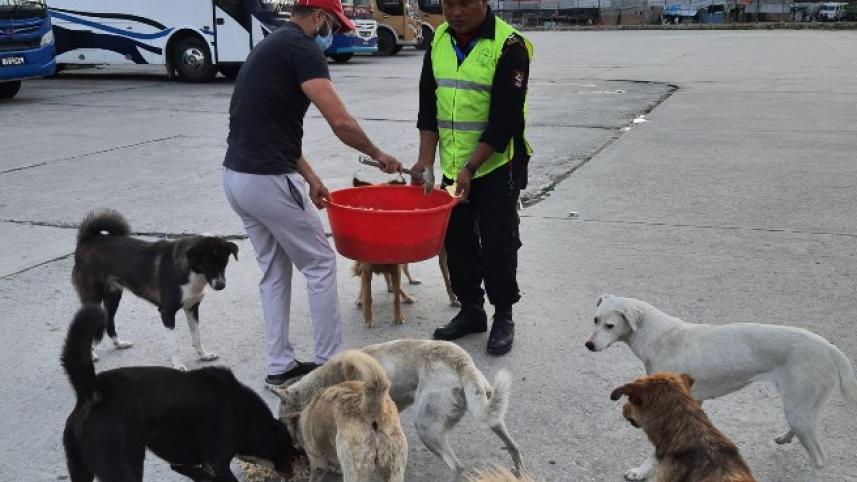A Tale of Impact: Saurav Rimal's Impactful Work in Nepal

Amidst the challenges posed by the Covid-19 pandemic, a story of compassion and transformation unfolded on the streets of Nepal's capital. Saurav Rimal, driven by a deep sense of empathy, fearlessly stepped out each day to feed and care for the city's street animals. This act was only the beginning of a remarkable journey that would touch the lives of countless individuals and communities across the nation.
Rimal's efforts gained recognition, leading to the establishment of the Karmayog Foundation, a platform that became the driving force behind his philanthropic endeavours. With a dedicated team of volunteers, Rimal sought to amplify the impact of his work, addressing pressing social issues and uplifting communities.
Beyond his concern for animals, Rimal's compassion knew no bounds. Going beyond the capital, his initiatives reached marginalised populations in various districts of Nepal. His work encompassed diverse groups, including labourers, elderly individuals, LGBTQIA+ communities, pregnant and postnatal women, schoolchildren, and those struggling with waste management challenges.

A visit to rural Nepal shed light on the inadequacy of educational resources available to students. Driven by the belief in the importance of quality education for all, Rimal set out on a mission to make a difference. Collaborating with local communities and schools, he provided essential reading and learning materials. His pioneering efforts led to the establishment of e-Libraries, equipped with laptops and software, to bridge the digital divide. Additionally, through teacher training programs, he empowered educators to create enriched learning environments.
The impact of Rimal's work was profound, with increased school enrolments in previously underserved areas. His initiatives not only improved educational outcomes but also brought hope to many.
Healthcare became another vital area of focus for Rimal. Recognising the challenges faced by communities without access to medical facilities, he organised free health camps to provide much-needed medical aid. During harsh winters in the Terai region, his distribution of blankets offered warmth and relief to vulnerable individuals.
One striking aspect of Rimal's work is his responsiveness to distress calls for help. His willingness to lend a helping hand has transformed lives and provided security to those facing social challenges.
While Rimal's dedication to serving society remains commendable, he remains modest, attributing his accomplishments to the collective effort of his team and the communities he serves. His work has left a lasting impact on individuals and communities, inspiring a culture of compassion and empathy in Nepalese society.
As we witness the ripple effect of Rimal's endeavours, his legacy continues to inspire others to join the cause. With each step, he brings us closer to a more equitable and compassionate society, underscoring the power of action and selfless service.



 For all latest news, follow The Daily Star's Google News channel.
For all latest news, follow The Daily Star's Google News channel.
Comments